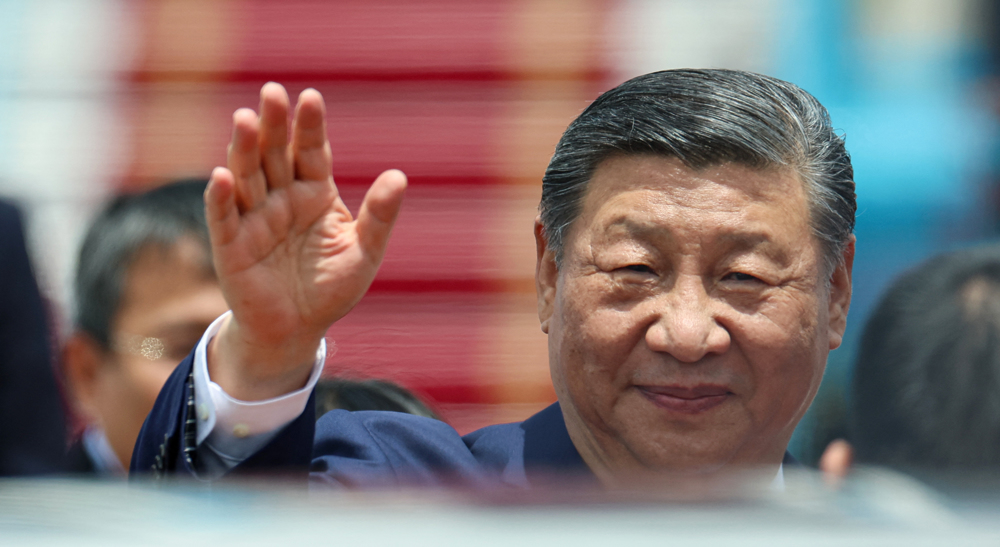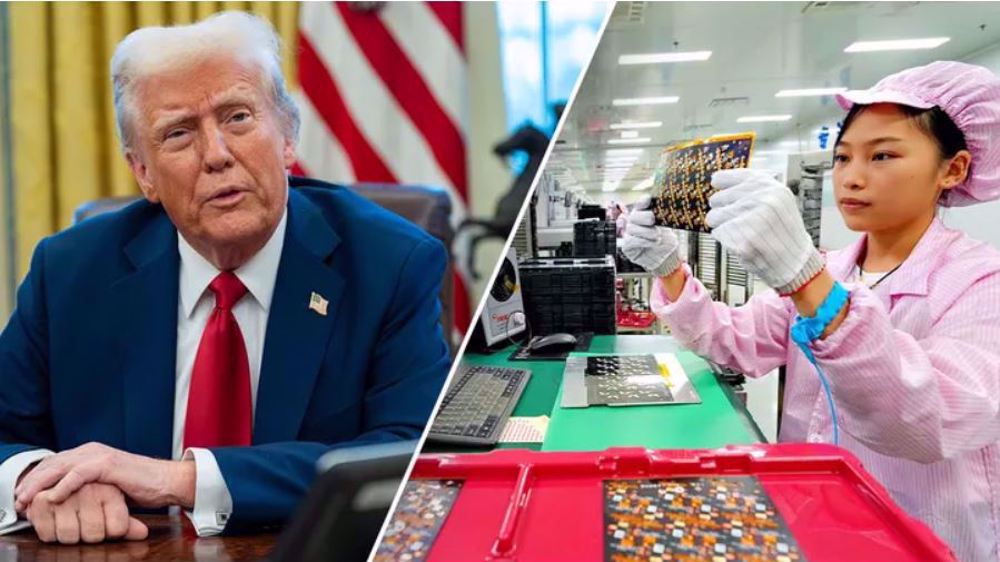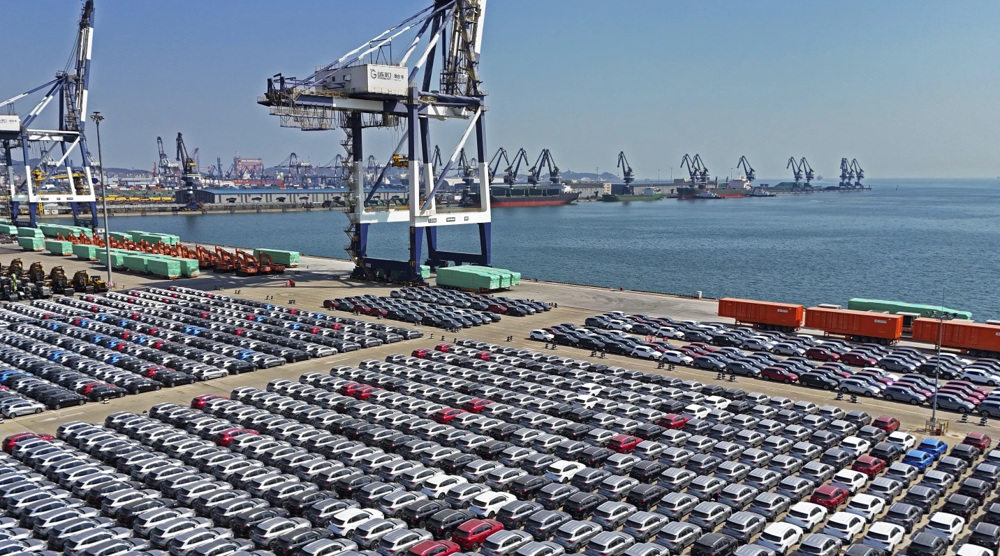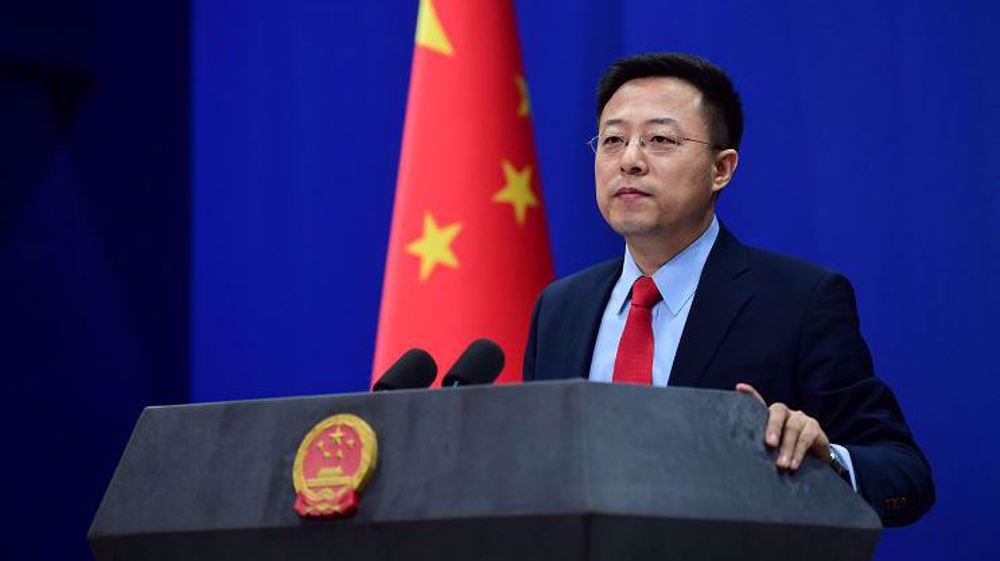Beijing slams new US sanctions over South China Sea
China firmly opposes new sanctions imposed by the United States on its officials and companies in the final days of President Donald Trump’s tenure.
The Trump administration imposed further sanctions on nine Chinese firms and military officials on Thursday over the country’s military activities in the South China Sea.
China’s Foreign Ministry spokesman Zhao Lijian said on Friday that Beijing firmly opposes the new measures.
“This action is against the trend of the times and is against its self touted market competition and international economic trade rules,” he said.
Among the firms are plane-maker Comac and smartphone maker Xiaomi Corp. and oil company, the China National Offshore Oil Corporation (CNOOC).
The US Commerce Department accused the oil giant of harassing and threatening “offshore oil and gas exploration and extraction in the South China Sea.”
The department secretary Wilbur Ross claimed that the CNOOC "acts a bully [for Beijing] to intimidate China's neighbors."
US Secretary of State Mike Pompeo also said that the sanctions were directed against those "responsible for, or complicit in, either the large-scale reclamation, construction, or militarization of disputed outposts in the South China Sea.”
He accused China of the “use of coercion against Southeast Asian claimants to inhibit their access to offshore resources in the South China Sea."
Pompeo also threatened to “continue to act until we see Beijing cease its coercive behavior in the South China Sea."
The US, which sides with China’s rival claimants in the sea, accuses Beijing of seeking to extend its sphere of influence in the region.
Vietnam, Taiwan, the Philippines, Malaysia, and Brunei have overlapping claims with China to parts of the sea, which serves as a gateway to global sea routes and through which about 3.4 trillion dollars of trade passes each year.
The United States routinely sends its warships and warplanes to the South China Sea to assert what it calls its right to “freedom of navigation.”
China has constantly warned Washington against military activities in the sea, saying that potential close military encounters by the air and naval forces of the two countries in the region could easily trigger accidents.
The Trump administration has pursued an aggressive foreign policy with regard to China, fighting Beijing on multiple fronts over the past four years.
It imposed sanctions on several technology firms, over allegations of having military links with Beijing.
The US and China have also been also fighting a trade and technological war.
Trump’s trade war on China costs 245,000 US jobs
A study commissioned by the US-China Business Council (USCBC) said the trade war, launched by Trump, has caused a peak loss of 245,000 US jobs.
The study, by Oxford Economics said that a gradual scaling back of tariffs on both sides would boost growth and lead to an additional 145,000 jobs by 2025.
It estimates that US exports to China support 1.2 million US jobs and that Chinese multinational companies directly employ 197,000 Americans, while US companies invested $105 billion in China in 2019.
“With China forecast to drive around one-third of global growth over the next decade, maintaining market access to China is increasingly essential for US businesses’ global success,” the study said.
US sanctions backfire on automakers around the globe
Meanwhile, industry officials warned that the US sanctions of Chinese companies has prompted a global shortage of semiconductors around the world.
The shortage, which could continue for many months, caused automakers to shut their assembly line in the US, and around the globe.
It caused Ford Motor Co, Subaru Corp and Toyota Motor Corp to curtail production in the US.
Automakers affected in other markets include Volkswagen, Nissan Motor Co Ltd and Fiat Chrysler Automobiles.
US commission accused China of 'genocide' in Xinjiang
In another development, a commission of the US Congress accused China of possibly committing “genocide” in its treatment of the Uighur Muslim community in its western region of Xinjiang.
The Congressional-Executive Commission on China (CECC) said that “crimes against humanity — and possibly genocide — are occurring” in Xinjiang.
The ethnic minority Uighurs — who make up about 45 percent of the population in Xinjiang — have long accused the government in Beijing of cultural, religious, and economic discrimination.
China rejects claims of mistreating the Uighurs, saying it has in fact been taking anti-terrorism measures against separatists seeking to join takfiri outfits such as al-Qaeda.
Last month China’s Foreign Ministry spokesman Wang Wenbin, called on Washington “to respect facts, stop making lies to smear China, and stop interfering in China's internal affairs under the pretext of Xinjiang-related issues.”

‘No winners in trade war’: China blasts Trump’s protectionism as Xi kicks off regional tour

‘Exemptions short-lived’: Trump warns of new rounds of tariffs on tech industry

China raises retaliatory tariffs on US goods to 125%
China urges US to ease trade tensions via ‘equal dialogue’
‘Hamas not defeated, military overstretched’: Israeli army chief
Iran, Armenia should elevate ties to strategic partnership: Deputy FM
VIDEO | Yemen shoots down another US MQ-9 drone
VIDEO | A number of Israeli soldiers killed, injured in Gaza ambush as retaliation rages
US pro-Israel strikes killed 123 Yemenis in less than a month: Ministry
VIDEO | Wars and documentaries
Iran starts major project to treat wastewater with cold plasma












 This makes it easy to access the Press TV website
This makes it easy to access the Press TV website